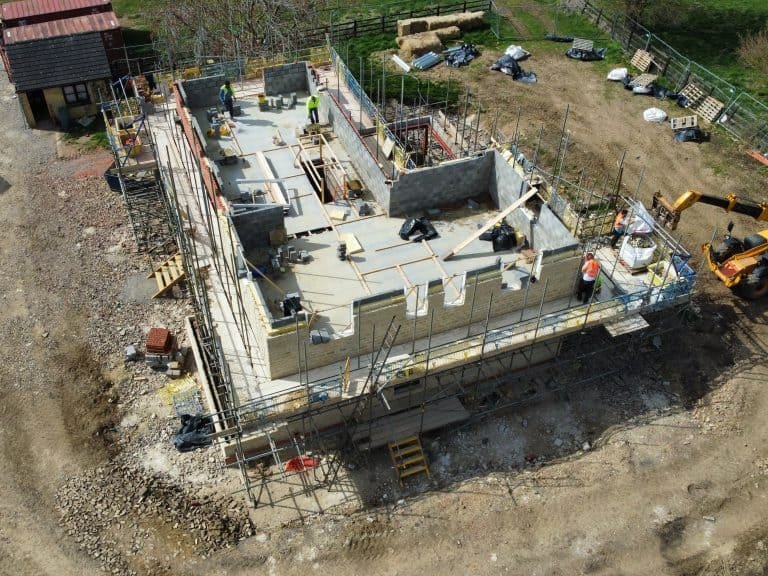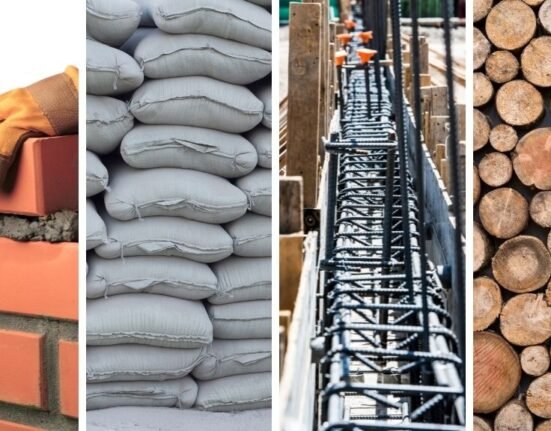Selecting the right building materials is essential for the success and durability of any construction project. Whether you are building a residential home, a commercial structure, or an industrial facility, the materials you choose directly impact the quality, safety, and longevity of the project. With a wide variety of materials available, understanding their properties and applications helps in making informed decisions that align with your project needs.
Concrete: The Foundation of Modern Construction
Concrete is one of the most commonly used building materials worldwide. It is a composite material made from cement, water, and aggregates such as sand and gravel. Concrete offers excellent strength, durability, and fire resistance, making it suitable for foundations, walls, floors, and structural supports. Its versatility allows for various forms and finishes, while advancements in technology have introduced reinforced and pre-cast concrete for specialized applications. Proper curing and mixing ratios are crucial to achieve optimal performance and prevent cracking over time.
Steel: Strength and Structural Integrity
Steel is a vital material in modern construction due to its high strength-to-weight ratio and flexibility. It is commonly used in structural frames, bridges, and high-rise buildings. Steel can withstand heavy loads, environmental stress, and seismic activities. There are various types of steel, including carbon steel, stainless steel, and galvanized steel, each suited for specific applications. When selecting steel, consider factors like corrosion resistance, load-bearing capacity, and environmental conditions to ensure structural integrity and long-term performance.
Wood: Traditional and Sustainable Choice
Wood remains a popular building material for residential and light commercial construction. It is easy to work with, renewable, and provides natural insulation. Common wood types include softwoods like pine and spruce, which are used for framing, and hardwoods like oak and mahogany, ideal for flooring and cabinetry. Engineered wood products, such as plywood and laminated veneer lumber (LVL), offer enhanced strength and stability. Proper treatment and maintenance protect wood from pests, moisture, and decay, ensuring longevity.
Brick and Masonry: Timeless Durability
Brick and masonry materials are renowned for their durability, fire resistance, and aesthetic appeal. Clay bricks, concrete blocks, and stone are commonly used for exterior walls, facades, and landscaping. These materials provide excellent thermal mass, helping to regulate indoor temperatures. Brick and masonry require skilled labor for installation but offer low maintenance and long service life. Consider local availability, climate compatibility, and architectural style when choosing these materials.
Glass: Modern Aesthetics and Functionality
Glass is an essential component in contemporary architecture, offering transparency, natural light, and thermal insulation. Types of glass used in construction include tempered glass for safety, laminated glass for soundproofing, and low-emissivity (Low-E) glass for energy efficiency. Double and triple glazing improve thermal performance, reducing energy consumption. When selecting glass, evaluate factors such as strength, UV protection, and aesthetic preferences to enhance both functionality and design.
Plastics and Composites: Versatile Solutions
Plastics and composite materials offer lightweight, corrosion-resistant, and cost-effective solutions for various construction applications. PVC (polyvinyl chloride) is widely used for plumbing, electrical conduits, and window frames. Fiber-reinforced polymers (FRP) provide high strength and are used in bridges and structural repairs. These materials require minimal maintenance and offer design flexibility. Assess environmental impact, durability, and intended use when incorporating plastics and composites into your project.
Insulation Materials: Enhancing Energy Efficiency
Proper insulation is critical for energy efficiency and occupant comfort. Common insulation materials include fiberglass, mineral wool, foam boards, and spray foam. Each type has unique thermal properties and application methods. For instance, fiberglass batts are cost-effective and easy to install, while spray foam offers superior air sealing and moisture control. Choose insulation materials based on R-value (thermal resistance), fire safety, and environmental sustainability to optimize building performance.
Roofing Materials: Protection from the Elements
Roofing materials safeguard buildings from weather and environmental conditions. Options include asphalt shingles for affordability, metal roofing for durability, clay tiles for aesthetics, and membrane roofing for flat structures. Each material has specific advantages regarding lifespan, maintenance, and weather resistance. Consider factors like local climate, roof pitch, and building style when selecting roofing materials to ensure long-term protection and visual appeal.
Flooring Materials: Balancing Function and Design
Flooring materials impact the aesthetics and functionality of interior spaces. Common options include hardwood for warmth, ceramic tiles for moisture resistance, vinyl for affordability, and polished concrete for industrial settings. Each flooring type varies in durability, maintenance, and cost. Evaluate the intended use of the space, foot traffic, and design preferences when choosing flooring materials to achieve a balance of beauty and practicality.
Choosing Sustainable Materials: Building for the Future
Sustainability is a growing priority in construction, driving the adoption of eco-friendly materials. Recycled steel, reclaimed wood, and low-VOC (volatile organic compounds) materials reduce environmental impact. Green certifications, such as LEED (Leadership in Energy and Environmental Design), guide the selection of sustainable building products. Prioritize materials with minimal environmental footprint, energy efficiency, and recyclability to support long-term ecological health.
Sign Up for Expert Insights
Making informed decisions about building materials requires up-to-date knowledge and expert guidance. Platforms like epci.ng provide in-depth resources, industry insights, and the latest innovations in construction technology. Stay ahead in your construction projects by accessing expert content tailored to your needs.
Sign up on epci.ng today and discover comprehensive solutions for modern building challenges, from material selection to advanced construction techniques.







Leave feedback about this